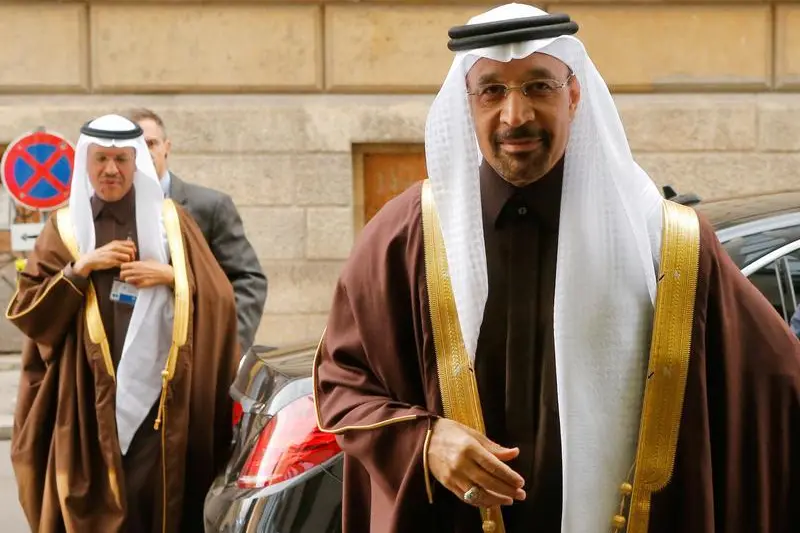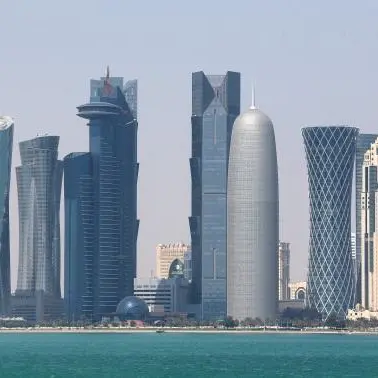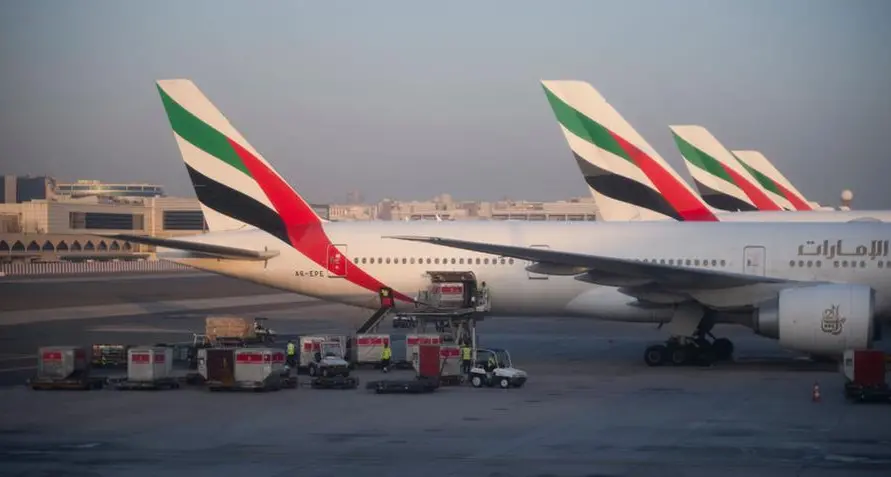PHOTO
30 November 2016
* Saudi Falih says OPEC close to reaching a deal
* Says Iran OK to freeze output at pre-sanction levels
* OPEC to study proposal to cut output by 1.2 mln bpd
* Brent futures up more than 5 percent, above $49/barrel (Adds Saudi comment, updates oil price)
By Ahmad Ghaddar, Alex Lawler and Rania El Gamal
VIENNA, Nov 30 (Reuters) - Saudi Energy Minister Khalid al-Falih said on Wednesday OPEC was close to clinching a deal to limit oil output, adding Riyadh would agree to Iran freezing production at pre-sanctions levels.
The comments could be seen as a compromise by Riyadh, which in recent weeks insisted that Iran fully participate in any cut.
Brent crude futures jumped more than 5 percent to above $49 a barrel. The Organization of the Petroleum Exporting Countries started a closed-door session at around 1000 GMT with a news conference scheduled for 1500 GMT.
Falih also said OPEC was focusing on reducing output to a ceiling of 32.5 million barrels per day, or cutting by more than 1 million bpd, and hoped Russia and other non-OPEC members would contribute a cut of another 0.6 million bpd.
But he added that even if OPEC failed to reach a deal, the market would slowly recover as fundamentals were moving in the right direction.
"We believe that non-OPEC growth has reversed and also most of the OPEC growth we've seen is already behind us," he told reporters.
Clashes between Saudi Arabia and arch-rival Iran have dominated many previous OPEC meetings.
On Tuesday, Iran wrote to OPEC saying it wanted Saudi Arabia to cut production by as much as 1 million bpd, much more than Riyadh was willing to offer, OPEC sources who saw the letter told Reuters.
But the tone changed on Wednesday. "I'm optimistic," said Iranian Oil Minister Bijan Zanganeh, adding there had been no request for Iran to cut output.
The 14-country group, which accounts for a third of global oil production, made a preliminary agreement in Algiers in September to cap output at around 32.5-33 million bpd versus the current 33.64 million bpd to prop up oil prices, which have halved since mid-2014.
OPEC said it would exempt Iran, Libya and Nigeria from cuts as their output has been crimped by unrest and sanctions.
The deal was seen as a victory for Iran. Tehran has long argued it wants to raise production to regain market share lost under Western sanctions, when its political foe Saudi Arabia increased output.
In recent weeks, Riyadh changed its stance and offered to cut its output by 0.5 million bpd, according to OPEC sources, while suggesting Iran limit production at around 3.8 million bpd - in line with or slightly above the country's current output.
Tehran has sent mixed signals, saying it wanted to produce as much as 4.2 million bpd. Iran's letter to OPEC suggested Saudi Arabia should cut output to 9.5 million bpd.
Documents prepared for Wednesday's meeting propose the group cut production by 1.2 million bpd from October levels, an OPEC source familiar with the papers said.
The papers also propose Saudi Arabia reduce production to 10.07 million bpd from 10.54 million bpd in October and that Iran freeze output at 3.797 million bpd.
An Algerian energy source said OPEC ministers so far supported the proposal.
Iraq has also been pressing for higher output limits, saying it needs more money to fight the militant group Islamic State. Iran and Iraq together produce over 8 million bpd, only slightly behind long-time leader Saudi with 10.5 million bpd.
The argument between Iraq and Saudi Arabia mainly focuses on whether Baghdad should use its own output estimates to limit production or rely on lower figures from OPEC's experts.
Some analysts including Morgan Stanley and Macquarie have said oil prices will correct sharply if OPEC fails to reach a deal, potentially going as low as $35 per barrel.
(Additional reporting by Vladimir Soldatkin, Shadia Nasralla and Lisa Barrington; Writing by Dmitry Zhdannikov; Editing by Dale Hudson)
© Reuters 2016
* Saudi Falih says OPEC close to reaching a deal
* Says Iran OK to freeze output at pre-sanction levels
* OPEC to study proposal to cut output by 1.2 mln bpd
* Brent futures up more than 5 percent, above $49/barrel (Adds Saudi comment, updates oil price)
By Ahmad Ghaddar, Alex Lawler and Rania El Gamal
VIENNA, Nov 30 (Reuters) - Saudi Energy Minister Khalid al-Falih said on Wednesday OPEC was close to clinching a deal to limit oil output, adding Riyadh would agree to Iran freezing production at pre-sanctions levels.
The comments could be seen as a compromise by Riyadh, which in recent weeks insisted that Iran fully participate in any cut.
Brent crude futures jumped more than 5 percent to above $49 a barrel. The Organization of the Petroleum Exporting Countries started a closed-door session at around 1000 GMT with a news conference scheduled for 1500 GMT.
Falih also said OPEC was focusing on reducing output to a ceiling of 32.5 million barrels per day, or cutting by more than 1 million bpd, and hoped Russia and other non-OPEC members would contribute a cut of another 0.6 million bpd.
But he added that even if OPEC failed to reach a deal, the market would slowly recover as fundamentals were moving in the right direction.
"We believe that non-OPEC growth has reversed and also most of the OPEC growth we've seen is already behind us," he told reporters.
Clashes between Saudi Arabia and arch-rival Iran have dominated many previous OPEC meetings.
On Tuesday, Iran wrote to OPEC saying it wanted Saudi Arabia to cut production by as much as 1 million bpd, much more than Riyadh was willing to offer, OPEC sources who saw the letter told Reuters.
But the tone changed on Wednesday. "I'm optimistic," said Iranian Oil Minister Bijan Zanganeh, adding there had been no request for Iran to cut output.
The 14-country group, which accounts for a third of global oil production, made a preliminary agreement in Algiers in September to cap output at around 32.5-33 million bpd versus the current 33.64 million bpd to prop up oil prices, which have halved since mid-2014.
OPEC said it would exempt Iran, Libya and Nigeria from cuts as their output has been crimped by unrest and sanctions.
The deal was seen as a victory for Iran. Tehran has long argued it wants to raise production to regain market share lost under Western sanctions, when its political foe Saudi Arabia increased output.
In recent weeks, Riyadh changed its stance and offered to cut its output by 0.5 million bpd, according to OPEC sources, while suggesting Iran limit production at around 3.8 million bpd - in line with or slightly above the country's current output.
Tehran has sent mixed signals, saying it wanted to produce as much as 4.2 million bpd. Iran's letter to OPEC suggested Saudi Arabia should cut output to 9.5 million bpd.
Documents prepared for Wednesday's meeting propose the group cut production by 1.2 million bpd from October levels, an OPEC source familiar with the papers said.
The papers also propose Saudi Arabia reduce production to 10.07 million bpd from 10.54 million bpd in October and that Iran freeze output at 3.797 million bpd.
An Algerian energy source said OPEC ministers so far supported the proposal.
Iraq has also been pressing for higher output limits, saying it needs more money to fight the militant group Islamic State. Iran and Iraq together produce over 8 million bpd, only slightly behind long-time leader Saudi with 10.5 million bpd.
The argument between Iraq and Saudi Arabia mainly focuses on whether Baghdad should use its own output estimates to limit production or rely on lower figures from OPEC's experts.
Some analysts including Morgan Stanley and Macquarie have said oil prices will correct sharply if OPEC fails to reach a deal, potentially going as low as $35 per barrel.
(Additional reporting by Vladimir Soldatkin, Shadia Nasralla and Lisa Barrington; Writing by Dmitry Zhdannikov; Editing by Dale Hudson)
© Reuters 2016












